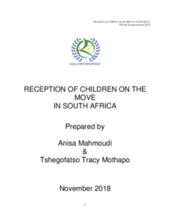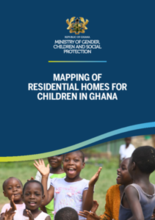Displaying 591 - 600 of 1510
This film tells the untold stories of orphanages, a system that's harming the very children we believe it protects, and how you can choose to be part of the solution.
The current study, based on the reports of a random cluster sample of 1236 adolescents in grades 8 to 12 residing in Israeli educational RCSs for youth from underprivileged backgrounds, examined the contribution of informal grandparental support to the life satisfaction of adolescents in residential care settings (RCSs).
This paper focuses on youngsters’ experiences of continuity in relation to youth-care services.
This phenomenological study focused on the experiences, aspirations, and fears of orphaned children living in and outside the orphanage in the Philippines.
The objective of this article was to report data across five public mother–baby units in Australia in order to explore similarities and distinguishing features of each model.
This report is the evaluation of the pilot partnership agreement between Police Scotland and local authorities, for responses to children and young people missing from foster and residential care.
This report from Kids Empowerment reviews the reception of children on the move in South Africa.
This geographical mapping and analysis of Residential Homes for Children (RHCs) in Ghana aimed to identify the “hot spots” - high concentration of RHCs and/or children in RHCs - and develop a comprehensive understanding of current trends, flows and drivers of children in RHCs in these “hot-spot” (priority) areas.
The aim of this study was to examine associations between mindfulness and psychological factors (i.e., depression, cognitive function, positive emotion, and negative emotion) among adolescent orphans in children's care homes in India.
Based on attachment theory, this study was conducted to analyze the contact between these children and their biological parents, and the factors affecting this contact.



